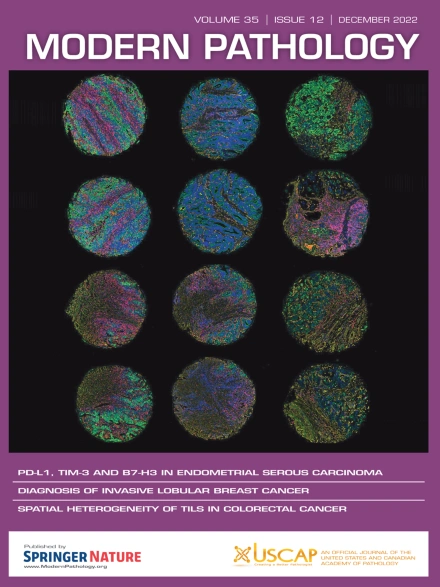Ethical and Bias Considerations in Artificial Intelligence/Machine Learning
IF 7.1
1区 医学
Q1 PATHOLOGY
引用次数: 0
Abstract
As artificial intelligence (AI) gains prominence in pathology and medicine, the ethical implications and potential biases within such integrated AI models will require careful scrutiny. Ethics and bias are important considerations in our practice settings, especially as an increased number of machine learning (ML) systems are being integrated within our various medical domains. Such ML-based systems have demonstrated remarkable capabilities in specified tasks such as, but not limited to, image recognition, natural language processing, and predictive analytics. However, the potential bias that may exist within such AI-ML models can also inadvertently lead to unfair and potentially detrimental outcomes. The source of bias within such ML models can be due to numerous factors but is typically categorized into 3 main buckets (data bias, development bias, and interaction bias). These could be due to the training data, algorithmic bias, feature engineering and selection issues, clinic and institutional bias (ie, practice variability), reporting bias, and temporal bias (ie, changes in technology, clinical practice, or disease patterns). Therefore, despite the potential of these AI-ML applications, their deployment in our day-to-day practice also raises noteworthy ethical concerns. To address ethics and bias in medicine, a comprehensive evaluation process is required, which will encompass all aspects of such systems, from model development through clinical deployment. Addressing these biases is crucial to ensure that AI-ML systems remain fair, transparent, and beneficial to all. This review will discuss the relevant ethical and bias considerations in AI-ML specifically within the pathology and medical domain.
人工智能(AI)/机器学习中的伦理和偏见考虑。
随着人工智能(AI)在病理学和医学领域的突出地位,这种集成人工智能模型中的伦理影响和潜在偏见将需要仔细审查。在我们的实践环境中,伦理和偏见是重要的考虑因素,特别是随着越来越多的机器学习(ML)系统被集成到我们的各个医疗领域。这种基于机器学习的系统在特定任务中表现出了非凡的能力,例如但不限于图像识别、自然语言处理和预测分析。然而,这种AI-ML模型中可能存在的潜在偏见也可能无意中导致不公平和潜在有害的结果。这种机器学习模型中的偏差来源可能是由于许多因素造成的,但通常可以分为三大类(数据偏差、发展偏差和交互偏差)。这可能是由于训练数据、算法偏差、特征工程和选择问题、临床和机构偏差(即实践可变性)、报告偏差和时间偏差(即技术、临床实践或疾病模式的变化)。因此,尽管这些AI-ML应用程序具有潜力,但它们在我们日常实践中的部署也引起了值得注意的伦理问题。为了解决医学中的伦理和偏见问题,需要一个全面的评估过程,该过程将涵盖这类系统从模型开发到临床部署的所有方面。解决这些偏见对于确保AI-ML系统保持公平、透明和对所有人有益至关重要。这篇综述将讨论AI-ML中相关的伦理和偏见考虑,特别是在病理学和医学领域。
本文章由计算机程序翻译,如有差异,请以英文原文为准。
求助全文
约1分钟内获得全文
求助全文
来源期刊

Modern Pathology
医学-病理学
CiteScore
14.30
自引率
2.70%
发文量
174
审稿时长
18 days
期刊介绍:
Modern Pathology, an international journal under the ownership of The United States & Canadian Academy of Pathology (USCAP), serves as an authoritative platform for publishing top-tier clinical and translational research studies in pathology.
Original manuscripts are the primary focus of Modern Pathology, complemented by impactful editorials, reviews, and practice guidelines covering all facets of precision diagnostics in human pathology. The journal's scope includes advancements in molecular diagnostics and genomic classifications of diseases, breakthroughs in immune-oncology, computational science, applied bioinformatics, and digital pathology.
 求助内容:
求助内容: 应助结果提醒方式:
应助结果提醒方式:


